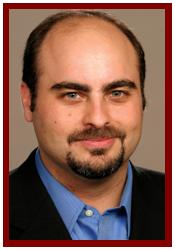 One of the paradoxes of modern life is that although we are trained to link success to our ability to reach people directly and personally, often success actually depends on the reactions of strangers whom we will never meet. Politicians live this paradox daily, as they combine the rituals of pressing the flesh with the realization of its limits. There are simply too many voters and, in our fragmented media landscape, too many potential bloggers and commentators to make a personal connection with all of them. More than one young political aspirant has begun a career with the promise that he or she will knock on every door in the district, or shake every possible hand. In the end, it is necessary, for the sake of both sanity and bodily health, to accept that universal personal contact is unattainable, and depend on the kindness of strangers, or at least the limitations of their unkindness.
One of the paradoxes of modern life is that although we are trained to link success to our ability to reach people directly and personally, often success actually depends on the reactions of strangers whom we will never meet. Politicians live this paradox daily, as they combine the rituals of pressing the flesh with the realization of its limits. There are simply too many voters and, in our fragmented media landscape, too many potential bloggers and commentators to make a personal connection with all of them. More than one young political aspirant has begun a career with the promise that he or she will knock on every door in the district, or shake every possible hand. In the end, it is necessary, for the sake of both sanity and bodily health, to accept that universal personal contact is unattainable, and depend on the kindness of strangers, or at least the limitations of their unkindness.
Academics and politicians share this paradoxical dependence on both personal contact and anonymity. In my career I have done my share of personal networking with colleagues and superiors, as well as spending hours with students—in the classroom, in office hours, and in the spaces in between—developing contacts and a personal reputation to help carve out a place in the academic world. Letters of recommendation and student evaluations, the product of such personal contact, play a significant role on the road to success. But a great deal of decisive power still lies in the hands of strangers—be they anonymous peer reviewers at journals and publishing houses, selection committees from fellowship granting foundations, or university tenure and promotion committees. Indeed, in academic life, the anonymity of those bodies is one of the few things still considered sacred. Certainly, one may be able to guess which expert in one’s field is most likely to be asked to evaluate a manuscript, or to write the external letters universities request in their tenure processes, and one may hear unofficially which senior members of the faculty happen to sit on the crucial committees. Nevertheless, it is forbidden (by custom and in some cases by rule) either to ask specifically who is making the decisions or even to see the full record of their deliberations.
Thoughtful readers can think of many reasons why this makes sense. Anonymity encourages frankness, objectivity, and the critical distance necessary to make intellectual evaluations. Indeed, anonymity is in many ways preferable to the opposite, which would have decisions made by friends and connections, which would freeze out those who are not already members of the club.
But anonymity has its decidedly chilly side as well. Strangers can be objective, but they can also view the cases before them not just on their merits but based on pre-existing assumptions, pigeonholing candidates or their works in ways that make decisions easier, but which may also miss the nuances of individual personality.
I am not a completely neutral analyst on this point. My experience with academic life, and especially the tenure process, has shown me the good and bad sides of the system. I freely admit that what success I have enjoyed thus far in my career owes a significant debt to the kindness of strangers on both sides of the Atlantic. I have also experienced the cold sting of anonymous rejection, sometimes simultaneously. It is therefore possible, for example, that one group of highly educated individuals can look at a file and vote unanimously in favor of a candidate while another group of highly educated individuals at the same institution can read the same file and reach precisely the opposite conclusion. In my case, between 2009 and 2010 my department twice voted overwhelmingly in favor of my tenure case, the university personnel committee voted no both times, and the Provost rejected my application.
Read the rest of…
Ronald J. Granieri: The (Un)kindness of Strangers








